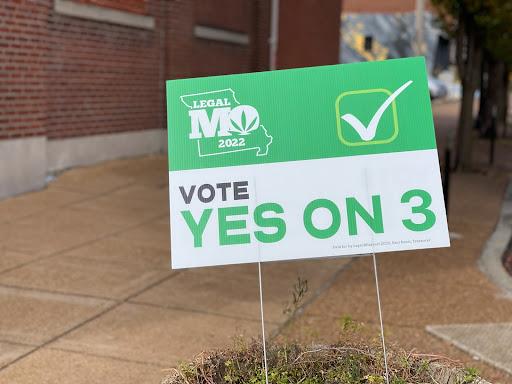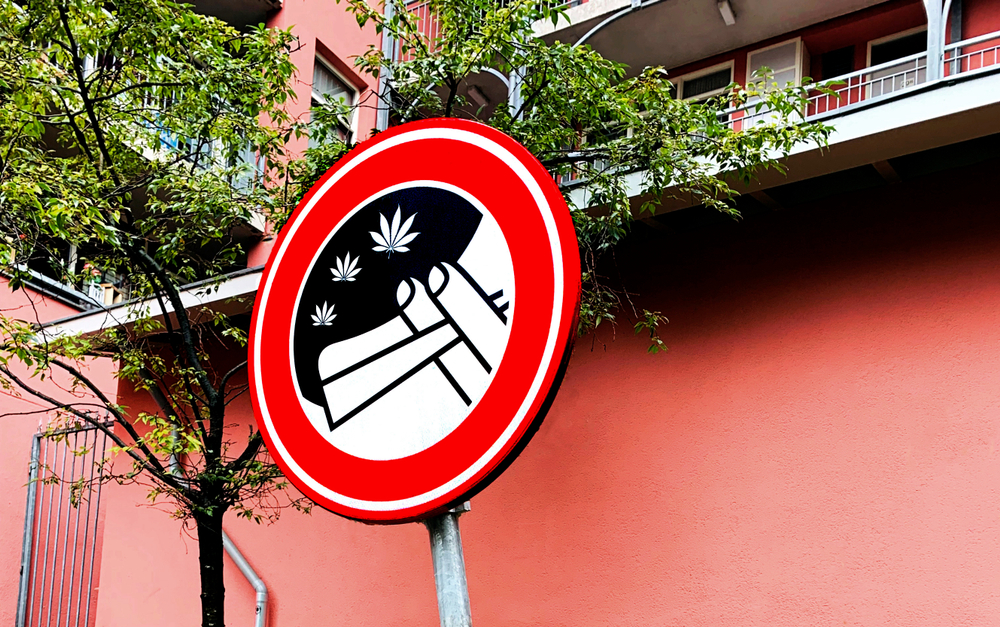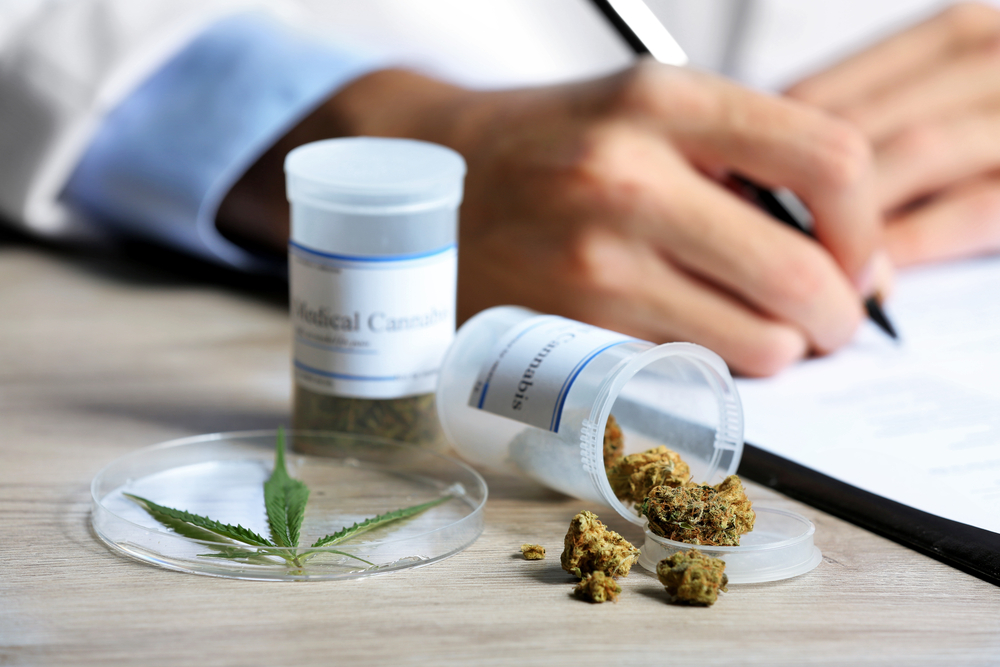Cannabis Year in Review: 2022 Highlights

Cannabis was a topic on everyone’s mind (and ballot) in 2022.
As we plan for the great year ahead, it’s equally important to reflect on all that has happened this past year.
From the James Webb Space Telescope capturing never-before-seen cosmic views to the remembrance of Queen Elizabeth, 2022 proved to be memorable with events that will define the decade ahead.
The cannabis industry was no exception. Our federal government pardoned thousands of people for federal marijuana convictions and even passed legislation that would make it easier for scientists to research the benefits and potential side effects of medical marijuana.
On a state level, too, it was clear that many Americans wanted cannabis reform. Numerous states voted for recreational adult use, and in states with legal weed, there was a dramatic push toward policy changes that would help those negatively impacted by the war on drugs.
As one last hooray for 2022, join us as we reflect on everything we learned about cannabis in 2022 and this past year’s cannabis highlights.

Where we stand federally
In October 2022, our federal government pardoned thousands of people for federal marijuana possession convictions. In his statement regarding the new legislation, President Joe Biden announced a three-step action plan that would address the harm previous cannabis convictions impose on people. “Too many lives have been upended because of our failed approach to marijuana,” he wrote. “It’s time that we right these wrongs.”
The pardon applies to those convicted of possession of marijuana; it does not apply to distributing, selling, or any other charges or convictions.
Over 6,500 individuals are impacted by the long overdue policy change, according to a report from NPR. And although more work needs to be done to address the devasting fallout pot convictions can have, it’s a step in the right direction.
In his statement, President Joe Biden also urged state governments to follow a similar approach with regard to state offenses.
For the last step of his action plan, he called on the secretary of Health and Human Services and the U.S. attorney general to review how weed is categorized under federal law.
Cannabis currently sits in Schedule I of the Controlled Substances Act, putting it in the same category as heroin, and even higher than fentanyl and methamphetamine – “the drugs that are driving our overdose epidemic,” Biden wrote.
A Schedule I classification means that it has no accepted medical benefits and a high likelihood of addiction – false claims championed by prohibitionists that have long been disproven. Because of this classification, though, it’s made it difficult for researchers to conduct clinical studies. The process for starting a study includes approval from several government agencies, which can take months to process.
Despite these hardships, cannabis researchers have forged on and last year published a record-setting 4,300 scientific papers about cannabis, a record likely to be broken in 2023.
Shortly after President Joe Biden’s pardon announcement, a bill was signed into law that makes it easier for scientists to conduct studies on medical marijuana.
The law (H.R. 8454) speeds up the approval process, giving the US attorney general a 60-day deadline to approve cannabis research applications or request additional information from the applicant. Similarly, it will expedite applications from producers that want to grow and distribute for research purposes. It also requires the DEA to ensure there is an “adequate and uninterrupted supply of marijuana for research purposes.”
The bill is the first stand-alone piece of cannabis-related legislation to pass both chambers of Congress, signaling a shift in attitudes about federal policy on the substance.
As far as rescheduling cannabis? No official timeline has been set, but things are looking bright for the future.

Image credit: Rebecca Rivas/The Missouri Independent
More states allow access to recreational pot
Americans have been clear: they want access to weed. An overwhelming 89 percent of Americans believe that cannabis should be allowed recreationally (59 percent) or legal for medical use only (30 percent), and in 2022, the ballots reflected this sentiment.
Five states had proposals to legalize recreational marijuana in the midterm elections, with three states – Maryland, Missouri, and Rhode Island – passing them.
There were, however, a number of states where proposals advanced through state legislatures, and where activists sought reform, but were unsuccessful. Similar proposals were rejected in Arkansas, North Dakota, and South Dakota.
As of 2022, medical marijuana is legal in 39 states and the District of Columbia. Recreational cannabis has been approved in 21 states and DC.
Even in states with legal weed, cannabis appeared on the ballots for various reasons. California, Colorado, and Illinois approved bills involving expungements and record sealing.
California Gov. Gavin Newsom signed 10 marijuana-related bills, including measures to allow interstate cannabis commerce, employment protections for marijuana users, and record sealing of prior convictions. Colorado’s governor similarly enacted a bill to streamline expungements, while the governor of Illinois signed a measure to ensure courts cannot deny petitions to expunge or seal records based on a positive drug test for cannabis.
Research shows potential benefits for cannabis use in adults with autism
For decades, autistic people and their families have experimented with medical marijuana to treat the various symptoms and behaviors of autism spectrum disorder (ASD).
A quick Google search of “cannabis and autism” populates over 10 million results, many of which include anecdotal claims that cannabis alleviates a range of autism-related problems.
This past year, however, we finally saw in-depth clinical research come to light.
A meta-analysis covering 425 studies was published in June 2022 and showed promising findings. Many behaviors associated with ASD improved after cannabis use, such as a reduction in the number and/or intensity of hyperactivity, attacks of self-mutilation and anger, anxiety, and depression. Moreover, the analysis also found an improvement in cognition, language, and social interaction in many of its subjects.
Unfortunately, traditional pharmaceutical treatments for autism are ineffective 40 percent of the time, the study reports. Cannabis provides hope and relief to these individuals, plus minimal side effects.
The study further reports that only a small percentage of individuals – about 2.2 to 14 percent – experience side effects from the use of cannabis products. While more research needs to be conducted, this adds to the increasing body of literature that pot is a safe and effective treatment for various conditions.
States with legal cannabis have less underage use and impaired driving, study finds
Since the start of cannabis reform in the late 90s, prohibitionists have said that legal weed creates more problems on the road. A study from Cannabis Public Policy Consulting (CPPC) disproves these claims.
The group analyzed a wide range of cannabis use trends and public health outcomes in 25 states, including those where pot is illegal, where medical use is legal, and where adult use is legal.
Despite anti-weed claims, they found that regulated markets actually promote more responsible behavior. In illicit states, for example, minors tend to use cannabis more frequently, and they start using at a younger age which can lead to cannabis use disorder and irresponsible consumption, says CPPC.
Another key finding is that users in illicit states report driving under the influence more often than those in legal states.
“It is unknown why the current study found greater driving under the influence of cannabis prevalence in illicit relative to legal states,” the report states. “One potential explanation is the tens of millions of dollars spent on public health messaging and education campaigns in legal states that led to better outcomes.”
The CPPC plans to run these studies quarterly moving forward and include all 50 states.
Medical marijuana reduces the use of addictive opioid painkillers
Cannabis and its ability to treat substance disorders have been studied for years, and in 2022, more research was published on its ability to treat opioid dependency.
In a study with over 2,000 participants, they found that nine in ten patients (90.6 percent) said marijuana is “very or extremely helpful in treating their medical condition.”
A large number of people use opioids to treat chronic conditions, and the medications have their drawbacks. One report found that over 60 percent of painkiller users report at least one negative side effect from their medication. For those living with chronic conditions where painkillers would traditionally be prescribed, medical marijuana provides relief and peace of mind.
There have been a number of observational studies that found cannabis legalization to be associated with decreased opioid use. Some researchers have also analyzed the trend from other angles.
For instance, a 2022 study found that the pharmaceutical industry takes a serious economic hit after states legalize pot – an average market loss of nearly $10 billion for drugmakers per each legalization event.
This economic hit could explain why cannabis still has a long way to go before becoming an FDA-approved treatment. For now, we can count on clinical studies, anecdotal evidence, advocates, and our industry leaders to point us to a brighter future.
Interested in learning more? Check out our extensive archive of educational cannabis content. We’d also love for you to follow us on Instagram to stay up-to-date on the latest Green news, events, and products.



